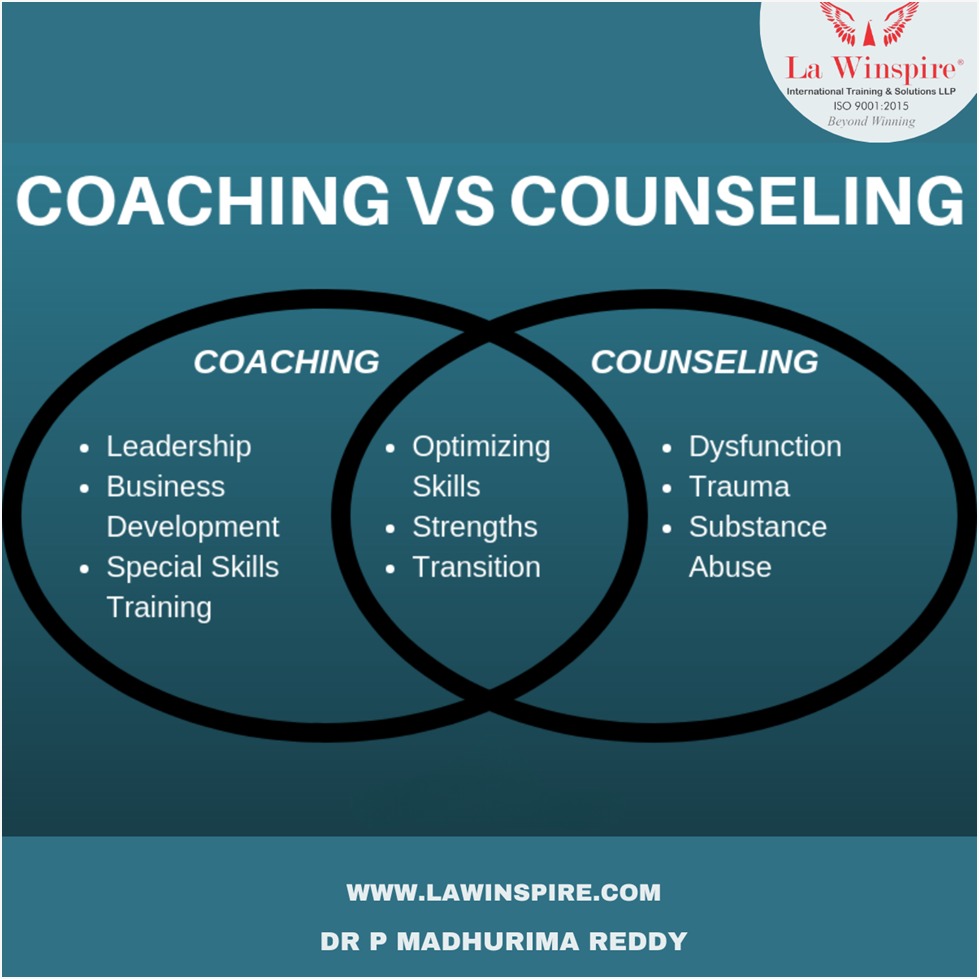In today’s fast-paced and competitive world, career decisions are no longer limited to choosing the right college or landing a dream job. Career development is a continuous process that involves personal growth, skill enhancement, mental well-being, and strategic decision-making. This is where the role of a psychologist in career development becomes crucial.
Psychologists are not just mental health professionals – they also play a transformative role in shaping individuals’ professional journeys. Whether you’re a student unsure about your career path, a professional experiencing burnout, or someone seeking clarity during a career transition, career counseling with a psychologist can provide the guidance you need.
In this comprehensive blog, we’ll explore the multifaceted role of psychologists in career development, when and why to seek their help, and how they can support your professional growth.
Understanding the Role of a Psychologist in Career Development
The role of a psychologist in career development goes beyond offering advice on job choices. Psychologists focus on the psychological, emotional, and behavioral aspects that influence career decisions. They help individuals understand their strengths, interests, values, and personality traits, which are critical for making informed career choices.

Key Functions of a Psychologist in Career Development:
- Self-Assessment and Career Exploration:
Psychologists use career assessment tools to help individuals identify their skills, interests, and aptitudes. This process provides clarity on potential career paths that align with their personality. - Career Decision-Making Support:
Making career decisions can be overwhelming. Psychologists guide individuals through structured decision-making processes, helping them weigh pros and cons, set realistic goals, and overcome indecision. - Mental Health and Career Growth:
Psychological well-being significantly impacts career success. Psychologists address issues like anxiety, workplace stress, burnout, and low self-esteem that can hinder professional growth. - Workplace Stress Management:
Navigating workplace challenges requires emotional resilience. Psychologists provide strategies for workplace stress management, conflict resolution, and enhancing work-life balance. - Personal Development and Careers:
Career success is deeply connected to personal development. Psychologists help individuals build confidence, improve communication skills, and develop leadership qualities.
When to Seek Career Help from a Psychologist
Knowing when to seek career help is essential for timely intervention and effective support. While many people associate career counseling with job hunting, psychologists can assist at various stages of professional life.
Signs You May Need Career Guidance Support:
- Feeling Stuck or Unfulfilled: You’re dissatisfied with your current job but unsure about the next steps.
- Struggling with Career Decisions: Difficulty choosing a career path, changing industries, or pursuing further education.
- Dealing with Workplace Stress: Experiencing burnout, anxiety, or conflicts at work.
- Lack of Motivation: Feeling disengaged, unproductive, or unmotivated in your career.
- Preparing for Career Transitions: Facing job loss, returning to work after a break, or transitioning into leadership roles.
Seeking career guidance support from a psychologist at the right time can prevent long-term dissatisfaction and help you build a fulfilling career.
Career Counseling vs. Career Coaching: What’s the Difference?
While the terms career counseling and career coaching are often used interchangeably, they have distinct differences, especially when provided by a psychologist.

Career Counseling:
- Focuses on self-exploration, psychological well-being, and decision-making processes.
- Involves assessments to understand interests, values, and personality traits.
- Addresses emotional barriers like anxiety, low self-esteem, or career-related stress.
- Typically provided by psychologists or certified counselors.
Career Coaching:
- Emphasizes goal setting, performance improvement, and skill development.
- Focuses on action-oriented strategies for achieving specific career goals.
- Suitable for professionals seeking leadership growth, productivity enhancement, or career transitions.
- Often provided by industry experts or professional coaches.
While career counseling vs. career coaching differs in approach, both can complement each other. A psychologist can integrate elements of both to provide holistic support.
How Psychologists Support Career Development Strategies
Developing effective career development strategies requires more than just technical skills or qualifications. Psychologists help individuals create personalized strategies that align with their goals and strengths.
Key Strategies Supported by Psychologists:
- Goal Setting and Planning:
Psychologists assist in setting SMART (Specific, Measurable, Achievable, Relevant, Time-bound) career goals and developing actionable plans. - Building Emotional Intelligence:
Emotional intelligence is vital for leadership, teamwork, and career growth. Psychologists help individuals enhance self-awareness, empathy, and interpersonal skills. - Resilience Training:
Career setbacks are inevitable. Psychologists teach resilience techniques to manage failures, adapt to changes, and bounce back stronger. - Confidence Building:
Low self-confidence can hinder career progression. Psychologists provide cognitive-behavioral techniques to boost self-esteem and professional assertiveness. - Career Assessment Tools:
Tools like personality tests, aptitude assessments, and interest inventories help individuals understand their strengths and align them with career choices.
The Impact of Mental Health on Career Growth
Mental health and career growth are deeply interconnected. Psychological issues such as stress, anxiety, depression, and burnout can significantly impact job performance, productivity, and career satisfaction.
Common Mental Health Challenges Affecting Careers:
- Workplace Stress and Burnout: Chronic stress can lead to exhaustion, decreased motivation, and reduced job satisfaction.
- Anxiety and Performance Pressure: High expectations can cause anxiety, affecting decision-making and productivity.
- Imposter Syndrome: Doubting one’s abilities despite evident success can hinder professional growth.
- Low Self-Esteem: A lack of confidence can prevent individuals from pursuing promotions or new opportunities.
Psychologists provide psychological support for careers by addressing these challenges, fostering emotional well-being, and promoting a healthy work-life balance.
Career Planning with a Psychologist
Effective career planning isn’t just about setting goals – it’s about understanding yourself, identifying opportunities, and navigating challenges with clarity. Career planning with a psychologist offers a structured approach that combines self-reflection, assessment, and strategic guidance.
Steps Involved in Career Planning with a Psychologist:
- Self-Discovery: Understanding your interests, values, strengths, and areas for growth.
- Career Assessment Tools: Using scientifically validated assessments to gain insights into suitable career options.
- Exploring Career Options: Identifying potential paths that align with your goals and personality.
- Decision-Making Support: Weighing pros and cons, considering long-term goals, and making informed choices.
- Action Planning: Developing a step-by-step plan to achieve your career objectives.
Psychologists ensure that career planning is not just about external achievements but also internal fulfillment.
Overcoming Career Challenges with Psychological Support
Career journeys are rarely linear. Everyone faces obstacles, whether it’s rejection, failure, workplace conflicts, or self-doubt. Overcoming career challenges requires resilience, adaptability, and the right support system.
How Psychologists Help Overcome Career Challenges:
- Cognitive-Behavioral Therapy (CBT): To reframe negative thought patterns and build a growth mindset.
- Stress Management Techniques: Mindfulness, relaxation exercises, and coping strategies for handling stress.
- Conflict Resolution Skills: Strategies to manage interpersonal conflicts in the workplace.
- Motivational Coaching: Techniques to reignite passion, set new goals, and stay motivated.
Seeking professional growth counseling from a psychologist during challenging times can provide clarity, direction, and renewed confidence.
FAQs About the Role of a Psychologist in Career Development
1. What is the role of a psychologist in career development?
The role of a psychologist in career development involves helping individuals with self-assessment, career decision-making, workplace stress management, and personal development. They provide psychological support to enhance both professional growth and mental well-being.
2. When should I seek career help from a psychologist?
Consider seeking help when you feel stuck in your career, face workplace stress, struggle with career decisions, experience low motivation, or need support during career transitions.
3. How do psychologists help with career decision-making?
Psychologists guide individuals through structured decision-making processes, using career assessment tools, goal-setting strategies, and cognitive techniques to clarify career paths.
4. What’s the difference between career counseling and career coaching?
Career counseling focuses on self-exploration, mental health, and decision-making, often provided by psychologists. Career coaching is action-oriented, focusing on performance, skill development, and goal achievement.
5. Can psychologists help with workplace stress management?
Yes, psychologists offer strategies for workplace stress management, including mindfulness, coping mechanisms, and conflict resolution techniques.
6. How do mental health issues affect career growth?
Issues like anxiety, depression, burnout, and low self-esteem can hinder job performance, decision-making, and professional satisfaction. Psychologists provide support to manage these challenges effectively.
7. Are career assessment tools effective?
Yes, career assessment tools help identify strengths, interests, and personality traits, offering valuable insights for informed career planning.
8. Can psychologists help with overcoming career challenges?
Absolutely. Psychologists use evidence-based techniques to help individuals overcome career-related obstacles, build resilience, and achieve their professional goals.
Final Thoughts
The journey to career success is as much about personal growth as it is about professional achievements. The role of a psychologist in career development is invaluable in guiding individuals through self-discovery, decision-making, and overcoming challenges.
If you’re at a crossroads in your career, experiencing workplace stress, or seeking clarity about your professional path, consider reaching out for career counseling or professional growth counseling with an experienced psychologist.
For expert support in career development, personal growth, and professional success, explore La Winspire International Training & Solutions LLP, founded by Dr. P Madhurima Reddy – an entrepreneur, peak performance trainer, life & wealth coach, psychologist, and educationist with over 26 years of transformative experience.
Also Read: Psychologist vs. Career Coach: Who Should You Approach for Career Advice?
